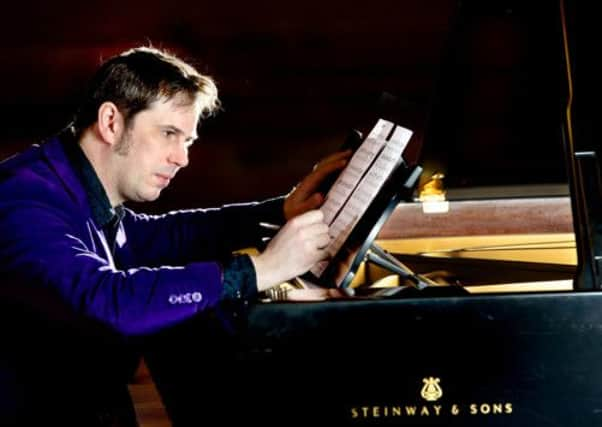David Patrick’s Stravinsky centenary jazz rework


Widely regarded as the most influential piece of music of the 20th century, it didn’t quite provoke the full-scale riots often attributed to that first performance, but there were certainly boos and cat-calls. This infuriated Stravinsky, although it was arguably more Nijinsky’s inelegantly “knock-kneed” shuffling choreography that enraged the audience, rather than the mighty orchestration itself.
Perhaps appropriately enough for next Wednesday’s gig by Patrick’s sextet – plus another the following night in Glasgow Art Club – Leonard Bernstein described The Rite of Spring as “prehistoric jazz”.
Advertisement
Hide AdAdvertisement
Hide AdIt is, agrees the Edinburgh pianist, truly an iconic piece of music, “and a hell of a project to take on. In the original score there are 18 woodwinds and 18 brass: how do you condense that down and rework it so you can do it with four horns? It’s been a real headache, like a big jigsaw in which the pieces keep changing shape.”
When Patrick first approached Bill Kyle, proprietor of the Jazz Bar (which is mounting this and the Glasgow Art Club concerts under the aegis of its Bridge Music wing) to suggest doing something to mark the centenary of Le Sacre du Printemps, they initially considered making a full, 90-minute, two-set suite of it, “but I got very busy with other things”.
He describes the result as a work in progress: “We’ll take three, maybe four, of the movements and rework them down a jazz setting. Stravinsky had over two years to compose The Rite. In retrospect, it was always a little ambitious to think I could rework the whole thing in less than two months. And so it proved.”
Allowing room for improvisation has been “an interesting process”, he says, with some understatement, one suspects. From a jazz point of view, The Rite of Spring is hardly short on syncopation – it does evoke, after all, a supposed pagan ritual in which a young virgin dances herself to death to propitiate the spirits of the earth, and its vivid orchestration judders and thunders with dramatically switching rhythms and metric patterns.
Iconoclastic in its time, the piece has become embedded into popular culture, adds Patrick. “So many movie scores reference it. If you watch any of the Bourne films, there are references to it all over the place, and then Jaws, of course …”
The pianist, who divides his time between touring and teaching at Edinburgh University and the City of Edinburgh Music School, has assembled an impressive line-up for these gigs, combining homegrown and German musicians – Tom MacNiven on trumpet, Brian Molley and Sam Coombs (the latter standing in for the originally billed Ruaridh Pattison, sidelined by study commitments at the Guildhall) on saxes, with German bassist and drummer Martin Zenker and Ole Seimetz. Patrick has toured extensively with Zenker, while he’s played just once with drummer Seimitz, but they immediately clicked musically. Billed as the David Patrick Sextet, the band actually becomes a septet for the Stravinsky, with the addition of reedsman Dick Lee on bass clarinet.
The rest of the performances will concentrate on original material by Patrick, a thoughtful player and improviser who is finding increasing satisfaction through composition. In a nod to that Rite centenary, however, they’ll also include an old Herbie Hancock number. It’s called Riot. “Somehow,” says Patrick, “it seems appropriate.”
• The David Patrick International Sextet plays the Jazz bar, Edinburgh, on 29 May and Glasgow Art Club on 30 May www.thejazzbar.co.uk